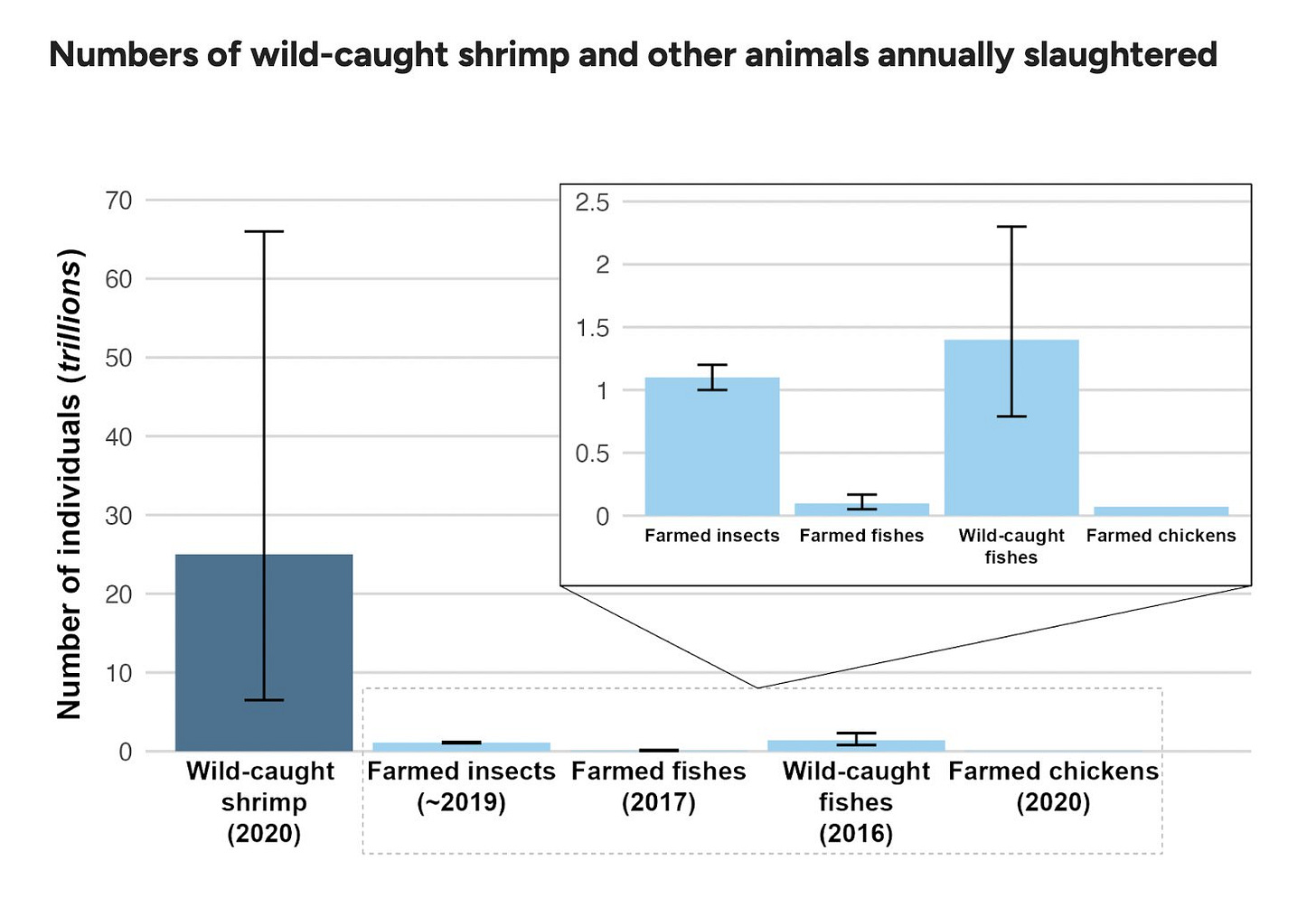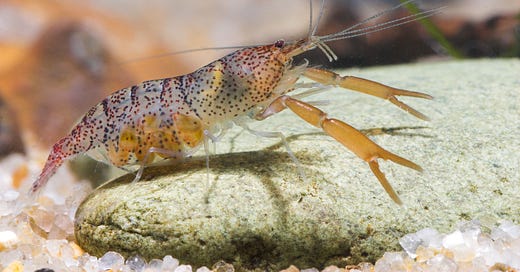Imagine you surveyed every white person in 18th century Virginia, asking them if they valued the lives of black people. A few brave, compassionate souls would probably say yes. They would reasonably intuit that black people feel happiness and sadness just like whites, and thus that enslaving them was wrong. But many, many white people wouldn’t say this. They were very racist. They were not on the receiving end of slavery. They benefitted from it and thus didn’t really care that it harmed so many people.
Would this survey of the moral views of whites provide us with evidence that racism and slavery are OK and that blacks are worth less than whites? Obviously not! To make such an absurd logical jump you’d have to ignore Hume’s is-ought gap entirely, which tells us that empirical facts aren’t the same as normative ones, and that specific empirical facts can’t imply normative ideas. To say that most people being racist justifies racism is to commit the naturalistic fallacy. Similarly, we could not survey the beliefs of Japanese soldiers in occupied Manchuria to determine whether or not massacring Chinese civilians is moral. It’s clearly not, even if they thought it was OK.
I would like to make it abundantly clear that I am not equating the moral value of Chinese and black people and shrimp, which should be evident to people with even the most deficient reading comprehension skills. I think humans—regardless of race—have a lot of moral value1, more than shrimp actually.
Fellow Substacker and McGillian
(whose work on fertility and writing about foreign policy is great ) recently wrote that shrimp have zero moral value. In his aptly titled article Nobody Cares About Shrimp—the subtitle of which is “You can kill millions of them however you want and it's fine”—he provides damning evidence from a survey that shows almost everyone, including utilitarians and Effective Altruists, would prefer to save a drowning child than save some number of shrimp.I have no problem with his data. It’s quite interesting. I’m not really surprised people don’t care that much about shrimp. Shrimp are weird. They’re small. They look different. Their lives are completely alien to us. It’s extremely difficult to intellectually empathize with them. But does that mean that “you can kill millions of them however you want and it’s fine,” as Lyman implies? No, it does not. If you accept this, you must also accept that sexism was OK in the past because most people were sexist.
I think shrimp matter. I know most people disagree with me, but I predict that more and more people will realize the moral value of shrimp over time, just as we’ve always expanded our circle of moral consideration throughout history. Most civilized people recognize that all humans have moral worth, no matter their gender, race, or nationality. We’ve moved beyond that. Some people are starting to realize that future humans and animals matter too. When we destroy the environment, which will make future lives worse, it’s wrong. When we brutally torture and slaughter animals, it’s wrong. When we kill shrimp by letting them suffocate to death in an ice slurry, it’s wrong. Why? Because they have sentience. They feel things, just like us. Perhaps the extent to which they feel things is up for debate, but the scientific consensus is that most animals—even small, weird ones like shrimp—are sentient. I might note that, since we can’t ever be 100% sure than any agent beside ourselves is sentient, we ought to err on the side of caution, to make sure we’re not accidentally committing grievous moral crimes.
Maybe you think other things matter, but not sentience. Maybe the number of neurons in your cerebellum or the ability to reason or make art or have self-awareness or some other thing we have and shrimp don’t is what gives us moral value. I think this is probably not true because it implies that humans who lack strong reasoning skills or whatever are less morally valuable. This probably means that it would be OK to torture extremely mentally disabled people, which I think is wrong.
If you believe the number of neurons in the cerebellum is really all that morally matters, then you think that a hypothetically cerebellectomized human could be tortured for fun, and it would be OK, which I think is wrong.
Maybe there’s something besides pleasure and pain that matter. I’m agnostic about this question. But I’m close to 100% certain that pain and pleasure are among the things that matter and that we should seek to minimize pain.

Some very smart people like
and have written about shrimp welfare. They’ve pointed out that shrimp matter and that we can help them very easily. Shrimp vastly outnumber other farmed animals, and around 25 trillion shrimp are killed annually for our consumption. The way they are killed is very inhumane: they are tossed on ice, where they slowly freeze to death and gasp for breath for about 20 minutes. Try to do some perspective-taking and imagine what this feels like. If I were a shrimp, I would want humans to not kill me in this awful way.Unlike Lyman, I think it’s not fine to “kill millions of [shrimp] however you want.” I believe that the suffocation of trillions of sentient creatures for fleeting gustatory pleasure is a moral calamity, a shameful blemish on humanity.
And you don’t have to be a utilitarian or an effective altruist to care about the suffering of other creatures! (That being said, I do think deontology is bonkers and Effective Altruism is correct.)
Fortunately, we can very easily save shrimp from terrible agony. For every dollar you donate to the Shrimp Welfare Project, it’s estimated that they avert 1,500 extremely painful shrimp deaths by giving electric stunners to shrimp companies so that they anesthetize the shrimp before freezing them. Our median scientific estimate of shrimp sentience finds that they suffer about 3.1% as intensely as humans. 3.1% of 1,500 is 46.5, meaning that the expected value of a one-dollar donation to the Shrimp Welfare Project is like the equivalent of tranquilizing 46.5 humans right before they are about to endure torture—and this benefit accrues annually, since these stunning machines only need to be bought once.
This is likely an extremely conservative estimate, since the average estimate for shrimp sentience puts it at 19% the intensity of human sentience. So you’re actually probably preventing an amount of suffering equivalent to 285 humans being suffocated to death (19% of 1,500 is 285) for every dollar you donate to the Project—and again, this benefit accrues annually.
The people at the Shrimp Welfare Project are extremely conscientious and diligent, and you can see all their research and methods on their site. They are not trying to swindle you into caring about shrimp for some malign reason.
I encourage you to cognitively empathize with other creatures and expand your circle of moral concern. As Bertrand Russell put it:
The next stage in the development of a desirable form of sensitiveness is sympathy. There is a purely physical sympathy: a very young child will cry because a brother or sister is crying. This, I suppose, affords the basis for the further developments.
The two enlargements that are needed are: first, to feel sympathy even when the sufferer is not an object of special affection; secondly, to feel it when the suffering is merely known to be occurring, not sensibly present. The second of these enlargements depends mainly upon intelligence. It may only go so far as sympathy with suffering which is portrayed vividly and touchingly, as in a good novel; it may, on the other hand, go so far as to enable a man to be moved emotionally by statistics. This capacity for abstract sympathy is as rare as it is important.
In fact, I even believe that humans have equal moral value, regardless of race. Yeah, I’ll put my neck out and say it. Racism is bad.





Btw the estimate you gave for the good done by the shrimp welfare project is a major estimate. It's 1500 per dollar per year--so plausibly tens of thousands per dollar. And the mean estimate for shrimp sentience is 19% as intensely as we suffer--it's the median estimate that's 3%, but you should obviously use the mean.
shrimps that matter: on the discursive limits of taking people's surveyed beliefs as moral truths